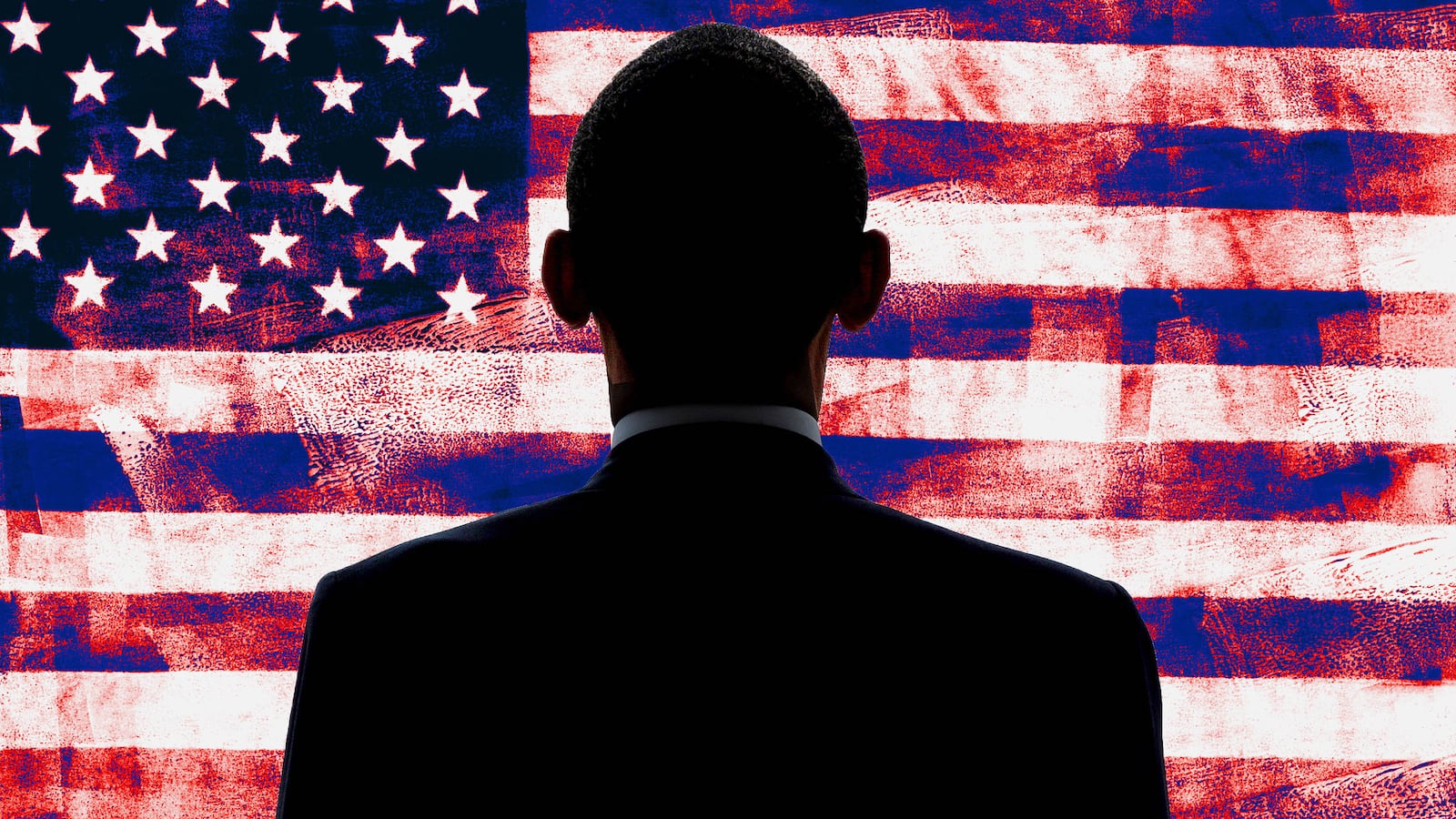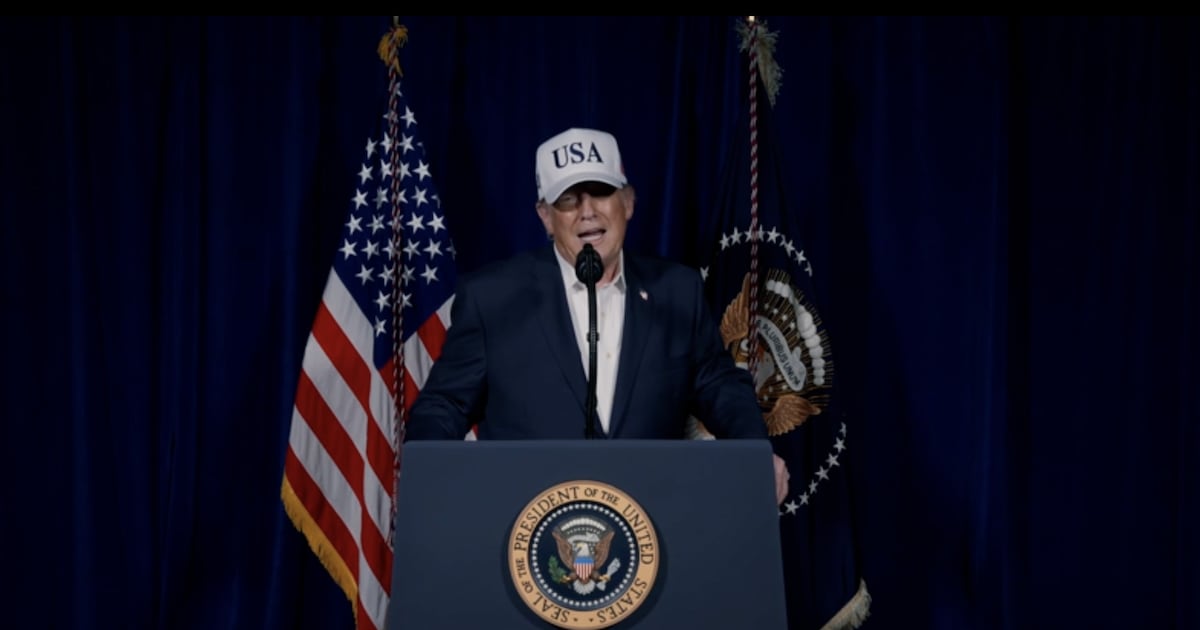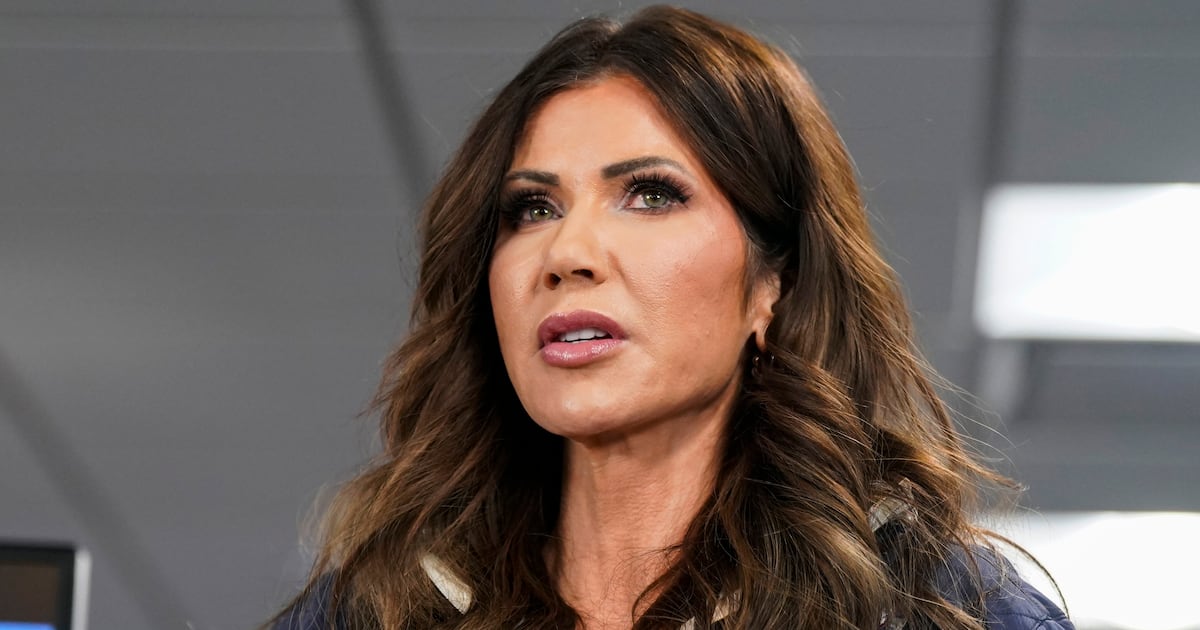It’s one of this autumn’s pleasant surprises. Two years after Donald Trump’s election as president and 10 years after his own, Barack Obama is gracefully re-entering our consciousness, reminding us of what we have lost and may yet recover.
The contrast between Obama and Trump—decent vs. despicable; incisive vs. ignorant; honest vs. humbug; classy vs. clownish—is now the critical subtext of the 2018 campaign. With Obama’s current approval ratings more than 20 points higher than Trump’s, the aching memory of his presidency will help energize Democrats in the midterms.
But Obama’s return is also a reminder that some of his admirable qualities—modesty, prudence, deliberateness—have inadvertently helped Republicans endanger everything he built.
If Obama’s reputation is secure, his legacy is not. Many of his accomplishments in office are in danger of being wiped out in November. The personal stakes for him and his place in history are high.
As he campaigns around the country, Obama seems to have two immediate goals: First, to help elect Democrats up and down the ballot—to check Trump in Congress but also to rebuild the Democratic Party at the state level so that after the 2020 census it can undo some of the gerrymandering that has so often hindered his party.
Second, and related, Obama hopes to educate the public about the origins of our present ills, not just Trump lying about his birth certificate (which Obama still downplays) but a Republican Party that grew increasingly radical and obstructionist long before its new hero entered politics. And the former president wants to remind voters that the so-called “economic miracle” we keep hearing about is just another of what are now more than 5,000 confirmed lies by Trump since he took office; the economy today is creating roughly the same number of jobs than it did in the last two years of the Obama presidency—and fewer, in fact, than in 2014.
Obama’s arguments are welcome, but they raise the question of why he didn’t make them more aggressively when he was in office. Michelle Obama, whose post-election book tour means she won’t be stumping this fall for candidates who have invited her into their districts (she will work instead on voter registration and turnout), famously told the 2016 Democratic Convention, “When they go low, we go high.” In hindsight, this looks noble but a tad naive. When they went low, why didn’t her husband at least ridicule them, as he did so mercilessly to Trump at the 2011 White House Correspondents’ Dinner?
The answer is that as the first black president, he thought it was important not to sound strident or excessively partisan. And he didn’t want to demean his office and risk his reputation by descending to Trump’s level. Even now, he’s reluctant to mention Trump’s name, for fear of becoming a useful foil for the president. If Democrats fall short, historians may fasten on his reluctance to mix it up more when he had the chance.
To understand why so much is on the line this fall, it helps to briefly review Obama’s eight years in office:
His first year as president was historic. After the 2008 financial collapse threw millions out of work and threatened another Great Depression, Obama stabilized and then re-regulated (through Dodd-Frank) the banking system and—largely forgotten—also offered help for underwater homeowners. His $787-billion stimulus package and simultaneous bailout of the auto industry (which ended up costing the taxpayers nothing) revived the cratering economy. It included middle-class tax cuts and huge new spending on green energy, medical research, and scores of other important investments. And in early 2010 he achieved what had eluded every Democratic president since Harry Truman—universal health care coverage. Amazingly, all of this money was spent without scandal.
But when the Republicans took the House in 2010—the most fateful midterm election in the history of the Democratic Party—Obama’s ability to move legislation through Congress ended after only two years. From then on, just about all he could do on the domestic side was issue executive orders, which have been easy for Trump to reverse. The GOP united to block comprehensive immigration reform (an idea many conservatives had favored under Bush) and any new stimulus (including critical infrastructure spending) to hasten the recovery, which then—not coincidentally— remained anemic for four more years. Beyond that, Republicans developed a habit of reflexively rejecting everything the president proposed, even if they had recently favored it.
Obama’s key mistake after the Great Recession was to go along with Republicans and elite opinion when they prematurely changed the subject to deficit reduction. In 2011, the Tea Party, anticipating Trump, hijacked the GOP and moved it to crazy town by shutting down the government and nearly defaulting on the national debt—all in the name of fiscal responsibility they were faking, as proven by their unanimous vote in 2017 to slash taxes and balloon the deficit that Obama had cut in half.
Obama managed to get reelected in 2012 but he did so without engaging in the party-building activities necessary to retake the House. He had several international successes: killing Osama bin Laden, winding down wars in Iraq and Afghanistan, delaying Iran’s acquisition of nuclear weapons with a deal that worked, helping save millions of Africans from dying of AIDS and Ebola. Obama policies in Syria and Libya could be chalked up as failures, but the Trans-Pacific Partnership trade deal was a huge long-term advance for the American economy (not to mention an effective check on China) and the U.S. led the way in securing the Paris Accords on Climate Change, which eventually included every country in the world.
After the GOP took the Senate in the 2014 midterms, which proved almost as bad for Democrats as 2010, Sen. Mitch McConnell, became majority leader. McConnell then proceeded to decree, in effect, that a presidential term lasted only three years instead of four. In early 2016, he announced that Republican senators would not even meet with Judge Merrick Garland, Obama’s moderate and impeccably-qualified nominee to fill the vacancy on the Supreme Court left by the death of Justice Antonin Scalia.
It was here, in the last year of his presidency, that “No Drama Obama” most failed to fight for himself—and for the rest of us. Why didn’t he dramatically travel down Pennsylvania Avenue to the Senate with Judge Garland in tow and inform McConnell before the cameras that he was violating his constitutional duty and must meet with them? It probably wouldn’t have changed anything, but he needed to try harder to exploit the theater of the presidency. He didn’t turn pugnacious because he—like so many others—was confident Hillary Clinton would win.
The same reticence applied to Russian intrusion on Trump’s behalf in the 2016 election. When Obama learned of it, he told Vladimir Putin to “cut it out,” but never went to the American people in prime time to explain the threat. With Hillary the likely winner, he figured, why convey to the world that the election had been compromised? He also rightly feared that Trump would argue that he was taking a late, unfair partisan shot.
It seems from his recent speeches that Obama understands he didn’t do enough in 2016. He apparently regrets, for instance, that he didn’t brag more about his record 75 months of economic growth. Democrats don’t like to seem indifferent to those left behind in the recovery, so they get bashful about their achievements. This makes it easier for Republicans to deny them altogether.
Now it’s nut-cutting time for the Obama legacy. If Republicans repeat the pattern of 2010 and 2014 and win the House, an emboldened Trump will move quickly to obliterate Obamacare, including the ban on insurers discriminating against anyone with a preexisting condition. Obama would no longer be remembered as the president who ended a long and shameful era in American history where people were forced to sell their homes or declare personal bankruptcy when someone in the family got sick.
Alternatively, if Democrats prevail, a program that has already insured more than 20 million people will muddle through and be strengthened when Democrats regain the presidency. Even if undermined further by the Roberts Court, it will remain, as Vice President Joe Biden said on the day Obama signed the Affordable Care Act, “a big fucking deal.”
The same stakes apply across the board, from the Mueller investigation (which will be shut down or ignored if Trump claims vindication by the voters) to the Iran nuclear deal, TPP, NAFTA and the Paris Accords, none which would be spared from further torching. If the GOP wins, Trump will face no resistance to his plans to free polluters, predatory lenders, fly-by-night colleges and other miscreants from the common-sense regulations implemented by Obama. The damage he has done so far in those areas will seem small by comparison. Also potentially emboldened: the white nationalists and other racist fringe groups who feel vindicated by Trump’s indulgence of them.
If, on the other hand, Democrats control at least one house of Congress, they have many ways to tie the Trumpsters up in knots every day while protecting the health and safety of the public and the record of their president. Obama initiatives in the Trump crosshairs like fuel economy standards, regulation of carbon emissions, and protections for Dreamers would be much harder to target. The border wall, new tax cuts and new libel laws would be DOA on Capitol Hill, and the House could use its power of the purse to curb disgraceful policies like work requirements for Medicaid recipients. Norms applied by Obama’s steady hand might even make a comeback, reinforced this time by empowered Democrats.
Most important, perhaps, Obama’s definition of the rule of law would return, even if Trump is not impeached. As president, Obama so believed in an independent Department of Justice that he wouldn’t even discuss prosecutions of bankers with his friend, Attorney General Eric Holder, for fear of being seen as interfering in cases beyond his authority. A Democratic House could restore the independence of law enforcement agencies with a blizzard of subpoenas and splashy hearings. If Trump fired Robert Mueller, House Democrats could immediately hire him and a large staff to continue his investigation.
When he was a candidate, Obama liked to quote Martin Luther King saying that “the arc of the moral universe is long but it bends toward justice.” He doesn’t talk that way so much any more. The arc of the last two years has been bending toward tragedy, for the world and for one man—a student of Shakespeare—watching much of his handiwork turn to dust.
Now, just weeks away, comes a fork in road. One way leads to the validation of Donald Trump and makes his reelection more likely. Six more years of him as president would mean the extinction of nearly everything Barack Obama achieved beyond becoming the first black president. The other path offers a chance at redemption. If enough Democrats stop knocking on wood and start knocking on doors, the president they revere may yet live large in history for more than the content of his character.
Jonathan Alter, a columnist for The Daily Beast, is the author of two New York Times bestsellers about Barack Obama, The Promise: President Obama, Year One (2010) and The Center Holds: Obama and His Enemies (2013).
Keep Reading for more Daily Beast 10th Anniversary Coverage:








